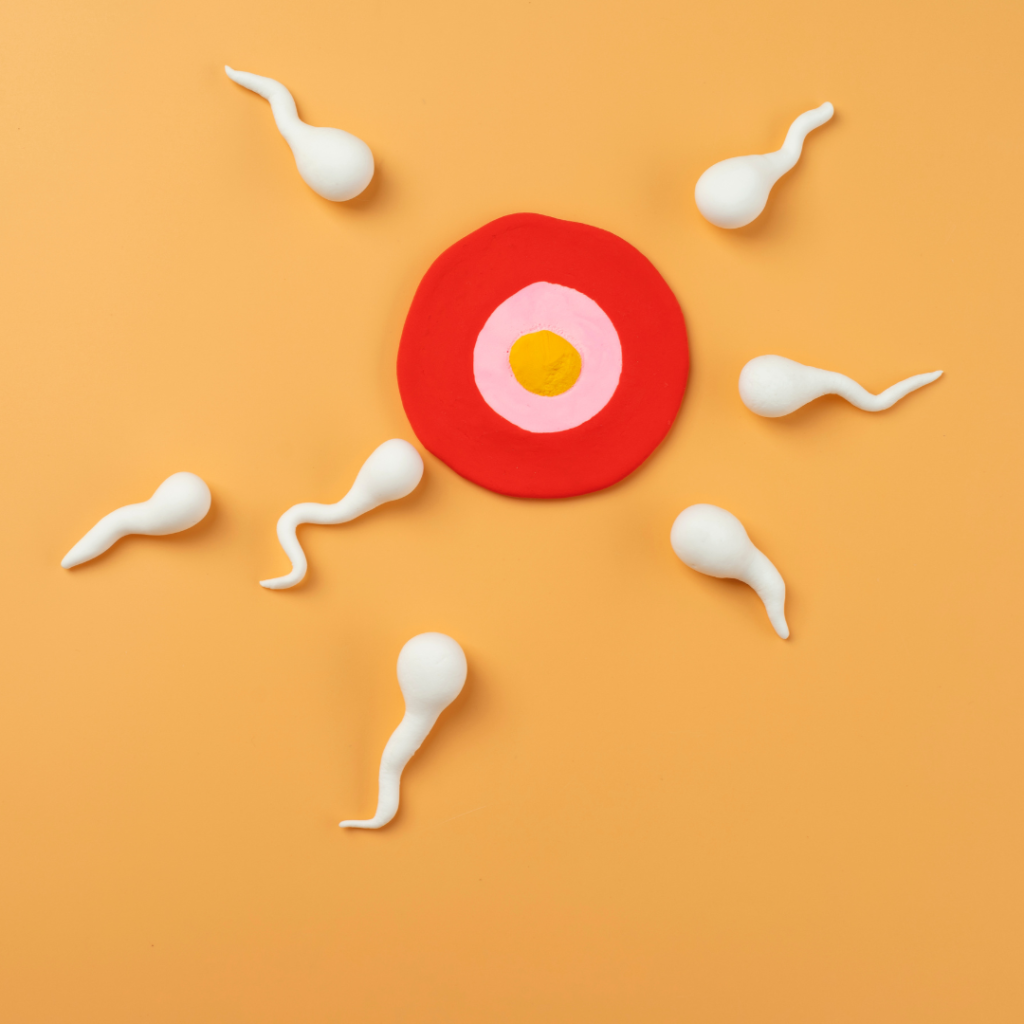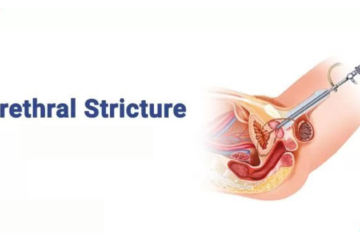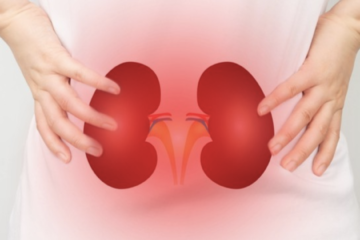
Parenthood is a cherished dream for many couples, but when challenges arise in conceiving, it can lead to emotional distress and uncertainty. One of the significant factors contributing to male infertility is low sperm count, scientifically known as oligospermia. Low sperm count occurs when the concentration of sperm in a man’s semen is below the normal threshold, reducing the likelihood of successful fertilization. In this blog, we will delve into the underlying causes of low sperm count and explore the available treatment options to address this sensitive issue, offering hope and guidance to those facing fertility challenges.
Causes of Low Sperm Count
Low sperm count, or oligospermia, can have a multitude of underlying causes, ranging from lifestyle factors to medical conditions. Understanding these causes is crucial in diagnosing and effectively treating the condition. Here, we will explore the various factors that can contribute to low sperm count in detail:
Lifestyle Factors:
a. Obesity: Being overweight or obese can lead to hormonal imbalances, specifically an increase in estrogen levels, which may negatively impact sperm production and quality.
b. Substance Abuse: Excessive consumption of alcohol, tobacco, and recreational drugs has been linked to reduced sperm count and compromised sperm motility and morphology.
c. Sedentary Lifestyle: A lack of physical activity and prolonged periods of sitting can influence hormone levels and impair sperm production.
d. Stress: Chronic stress can disrupt hormonal balance, affecting the production of sperm and potentially leading to low sperm count.
Medical Conditions:
a. Hormonal Imbalances: Conditions such as hypogonadism (low testosterone levels) and hyperprolactinemia (elevated prolactin levels) can interfere with the signalling pathways responsible for sperm production.
b. Infections: Infections of the reproductive system, especially sexually transmitted infections (STIs), can cause inflammation and damage to the testes, affecting sperm production.
c. Varicocele: This is a condition where the veins that drain blood from the testicles become enlarged, leading to increased testicular temperature. The elevated temperature can have a detrimental effect on sperm production and quality.
d. Testicular Trauma: Injuries to the testes, such as those resulting from accidents or sports-related incidents, can impair sperm production.
e. Cancer and its Treatments: Some cancer treatments, including chemotherapy and radiation therapy, can harm sperm-producing cells in the testes.
f. Genetic Disorders: Certain genetic conditions, such as Klinefelter syndrome or Y chromosome microdeletions, can be associated with low sperm count.
Environmental Factors:
a. Exposure to Toxins: Prolonged exposure to environmental toxins, such as pesticides, industrial chemicals, and heavy metals, can affect sperm production and function.
b. Heat Exposure: Frequent use of saunas, hot tubs, or wearing tight-fitting underwear can increase testicular temperature, negatively impacting sperm production.
Medications: Certain medications, such as anabolic steroids, some antifungal drugs, and some medications used to treat high blood pressure, can lead to decreased sperm production.
Age: As men age, the overall quantity and quality of sperm may decline, leading to a reduction in sperm count.
It is essential to note that in many cases, the cause of low sperm count might be a combination of factors rather than a single identifiable cause.
Diagnosis of Low Sperm Count
Diagnosing low sperm count (oligospermia) involves a comprehensive evaluation of a man’s semen sample and sometimes additional tests to identify potential underlying causes. Here is a detailed explanation of the diagnosis process:
Initial Consultation and Medical History: The diagnostic process typically begins with an initial consultation with a healthcare professional or a reproductive specialist. During this consultation, the doctor will take a detailed medical history, which includes asking about any pre-existing medical conditions, medications, lifestyle habits, sexual history, and any previous attempts at conception.
Semen Analysis: The cornerstone of diagnosing low sperm count is a semen analysis, also known as a sperm count test. The man is asked to provide a semen sample through masturbation or ejaculation into a sterile container. The sample is then analyzed in a laboratory by a trained technician.
Semen analysis assesses several key parameters, including:
a. Sperm Count: This measures the number of sperm present in one millilitre of semen. A normal sperm count is generally considered to be 15 million sperm per millilitre or more.
b. Sperm Motility: This evaluates the percentage of sperm that are moving actively. Motility is essential for sperm to travel through the female reproductive tract and reach the egg.
c. Sperm Morphology: This examines the size and shape of sperm. Normal sperm have a typical shape, while abnormal sperm may have issues with their head, midpiece, or tail.
d. Volume: This measures the total volume of semen produced in one ejaculation.
It’s important to note that for an accurate assessment, two or more semen analyses might be recommended, as sperm counts can fluctuate over time due to various factors.
Additional Testing:
a. Hormone Testing: If the initial semen analysis indicates low sperm count, further tests may be conducted to measure hormone levels, such as testosterone, luteinizing hormone (LH), follicle-stimulating hormone (FSH), and prolactin. Hormonal imbalances can contribute to low sperm production.
b. Genetic Testing: In some cases, genetic testing may be recommended to check for any chromosomal abnormalities or genetic conditions that could be causing a low sperm count.
c. Testicular Ultrasound: A testicular ultrasound may be performed to examine the structure of the testicles and check for any abnormalities or blockages that could be affecting sperm production.
d. Post-Ejaculation Urinalysis: This test evaluates whether sperm is flowing backwards into the bladder instead of being ejaculated normally (retrograde ejaculation).
e. Anti-Sperm Antibodies Test: In some cases, anti-sperm antibodies might attack and impair sperm function. A blood test can check for the presence of these antibodies.
Psychological Evaluation: Sometimes, stress or psychological factors can contribute to fertility issues. A psychological evaluation may be conducted to assess any emotional factors that could affect fertility.
Treatment Options for Low Sperm Count
Treating low sperm count (oligospermia) aims to improve sperm production, motility, and overall sperm quality, thereby increasing the chances of successful conception. The treatment approach may vary depending on the underlying cause of the condition. Here are the various treatment options available for low sperm count, explained in detail:
Lifestyle Changes: In some cases, making specific lifestyle modifications can significantly improve sperm count and quality. These changes may include:
a. Healthy Diet: A well-balanced diet rich in vitamins, minerals, antioxidants, and omega-3 fatty acids can promote sperm health. Including fruits, vegetables, whole grains, nuts, and lean proteins is essential.
b. Regular Exercise: Engaging in regular physical activity can help regulate hormone levels and improve overall reproductive health.
c. Weight Management: Achieving and maintaining a healthy weight is crucial, as obesity has been associated with decreased sperm production and motility.
d. Avoiding Harmful Substances: Reducing or eliminating alcohol consumption, tobacco use, and recreational drug use can positively impact sperm quality.
e. Stress Management: Managing stress through relaxation techniques, meditation, or counselling can help alleviate potential negative effects on fertility.
Medications:
a. Hormone Therapy: If hormonal imbalances are contributing to low sperm count, hormone replacement therapy may be prescribed. This can help stimulate the production of testosterone and other hormones necessary for sperm production.
b. Antibiotics: In cases of infections that affect sperm production, antibiotics may be prescribed to treat the underlying infection and improve sperm health.
Surgical Interventions:
a. Varicocele Repair: If a varicocele is identified as the cause of low sperm count, surgery to repair the enlarged veins in the scrotum can enhance sperm count and motility.
b. Ejaculatory Duct Resection: This surgical procedure can be performed to address obstructions in the ducts responsible for transporting sperm.
Assisted Reproductive Techniques:
a. Intrauterine Insemination (IUI): During IUI, concentrated and specially prepared sperm are directly placed into the woman’s uterus during ovulation to increase the likelihood of fertilization.
b. In Vitro Fertilization (IVF): IVF involves fertilizing the woman’s egg with the sperm outside the body in a laboratory. The resulting embryos are then transferred to the woman’s uterus.
c. Intracytoplasmic Sperm Injection (ICSI): ICSI is a specialized form of IVF in which a single sperm is directly injected into an egg to facilitate fertilization, especially in cases of severe male infertility.
Artificial Insemination with Donor Sperm: In situations where the male partner’s sperm count is extremely low or nonviable, couples may consider using donor sperm for artificial insemination or IVF.
Medications to Reduce Retrograde Ejaculation: For men with retrograde ejaculation (sperm flowing backwards into the bladder instead of being ejaculated), certain medications can be prescribed to help direct sperm flow out during ejaculation.
It is crucial for couples dealing with low sperm count to consult with a qualified healthcare professional or a reproductive specialist to determine the most appropriate treatment plan based on individual factors and medical history. Dr. Sumit Sharma is an experienced urologist, andrologist, and kidney transplant surgeon with over 20 years of clinical experience. He is the founder of the Department of Urology at multiple hospitals in Gurgaon and has established successful kidney transplant programs across the city.
Coping with Low Sperm Count
Coping with low sperm count can be emotionally challenging for both men and their partners. The diagnosis of infertility can evoke a wide range of emotions, including sadness, frustration, guilt, and anxiety. However, it is essential to remember that you are not alone, and there are coping strategies and support systems available to help navigate through this difficult time. Here are some detailed coping mechanisms for dealing with low sperm count:
Open Communication: Maintain open and honest communication with your partner about your feelings and concerns regarding the diagnosis. Infertility can be a sensitive topic, but talking openly about it can strengthen your relationship and provide mutual support.
Seek Professional Guidance: Schedule regular appointments with a fertility specialist or reproductive endocrinologist. These experts can provide valuable insights, answer questions, and guide you through the various treatment options available.
Join Support Groups: Consider joining infertility support groups or online forums where you can connect with others facing similar challenges. Sharing experiences and hearing success stories can offer hope and a sense of belonging.
Educate Yourself: Learn as much as you can about low sperm count and infertility. Understanding the condition and the available treatment options can help alleviate anxiety and empower you to make informed decisions.
Manage Stress: Coping with infertility can be stressful, impacting your emotional well-being and fertility. Engage in stress-reduction techniques like yoga, meditation, deep breathing exercises, or mindfulness practices.
Adopt a Healthy Lifestyle: Focus on maintaining a healthy lifestyle by eating a balanced diet, exercising regularly, and getting enough rest. A healthy lifestyle can positively influence your overall well-being and potentially improve fertility.
Participate in Activities You Enjoy: Engaging in activities that bring joy and fulfilment can help distract from the stress of infertility and improve your mood.
Set Realistic Expectations: Understand that the fertility treatment journey may be unpredictable and challenging. Be prepared for ups and downs along the way, and try to manage expectations accordingly.
Consider Counseling: Seeking professional counselling or therapy can provide emotional support and help you develop effective coping strategies to deal with the emotional toll of infertility.
Focus on the Relationship: Remember that the journey to parenthood is a shared experience between you and your partner. Find ways to strengthen your relationship and maintain intimacy throughout the process.
Explore Alternative Family-Building Options: Be open to considering alternative paths to parenthood, such as adoption or using donor sperm. These options can provide an opportunity to create a loving family.
Take Breaks When Needed: Fertility treatments can be physically and emotionally demanding. It is okay to take breaks when needed to rest and recharge.
Conclusion
In conclusion, low sperm count (oligospermia) is a common concern affecting male fertility and can significantly impact a couple’s journey to parenthood. Understanding the diverse causes of low sperm count is vital in diagnosing the condition accurately and formulating effective treatment strategies. From lifestyle adjustments to medical interventions and assisted reproductive techniques, there are various options available to address low sperm count and increase the chances of successful conception.
For those facing the challenges of low sperm count, it is essential to seek professional guidance from qualified healthcare providers or reproductive specialists. Remember that infertility is a shared experience that can bring couples closer together, and open communication is crucial in navigating this emotional journey.
Dr. Sumit Sharma is an experienced urologist, andrologist, and kidney transplant surgeon with over 20 years of clinical experience. He is the founder of the Department of Urology at multiple hospitals in Gurgaon and has established successful kidney transplant programs across the city.



